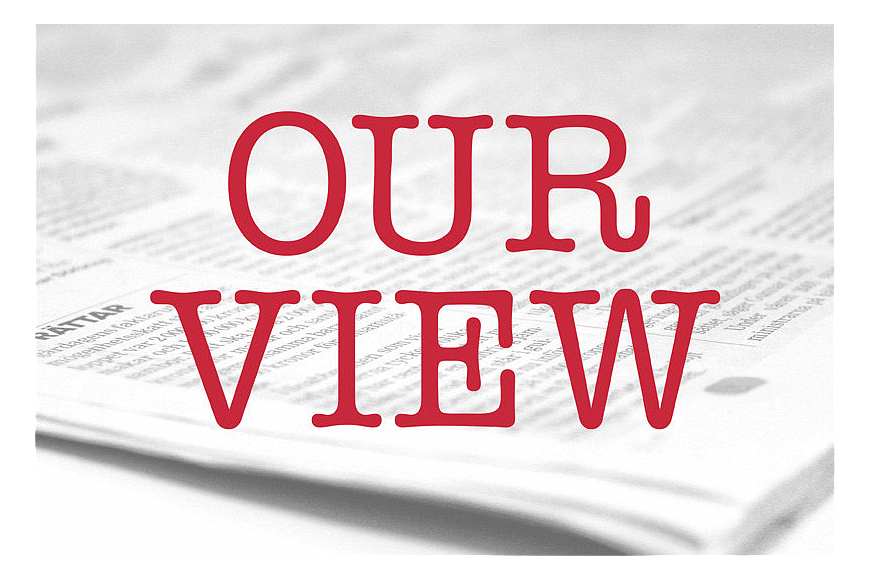- May 16, 2025
-
-
Loading

Loading

In the Marines, the moment enlisted recruits step off the bus at Parris Island or San Diego, or when officer candidates receive their welcome-aboard speech from the commanding officer at Officer Candidate School, it’s chaos.
Unrelenting chaos.
“Some can function, others don’t,” writes soon-to-be Marine Maj. Brian Walsh. Walsh, our 31-year-old son, has seen his share of chaos since his commissioning as a second lieutenant in 2011.
His experiences came to mind over the weekend and this week as the news of the coronavirus increasingly felt like unrelenting chaos. So we asked him: What do the Marines teach to be able to handle chaos and crises?
“Being able to filter out the noise and have immediate obedience to orders is one of the first lessons you learn,” he writes. Shortly after that lesson, all Marines learn a second golden, indispensable lesson:
“Calm breeds calm,”
“No matter what the situation is, an officer should remain calm and collected at all times. Being able to think, decide, communicate and act during the fog of war is essential. The best lesson learned that can relate to coronavirus is calm breeds calm.”
We need that. A lot of that. From everyone.
As we heard the stories of individuals buying up trays of fish and hamburger at Publix, saw store shelves cleaned out of toilet paper and produce, shoppers arguing over how many tissue boxes each is allotted and lines of people outside of CVS waiting to snarf up hand sanitizers, you couldn’t conclude anything other than: This is nuts.
Clearly, people are not calm. They’re shunning common sense and courtesies. It’s scary to see bestial, survival-of-the fittest instincts come to life over boxes of tissues.
This whole thing is surreal, to be sure. In one sense it brings to the mind’s eye Rick Atkinson’s “Guns at Last Light” on World War II. He described the eerie scenes in London after the German bombings of desperate, hungry Londoners scrounging for dead cormorants and eel on the bomb-cratered streets.
Is that where we’re headed, the 21st century version? Food shortages? Worse? Our son-in-law told us he went to the gun range earlier this week for ammunition. The shelves were virtually wiped out.
How far will this pandemic destruction go?
To be sure, the national media — especially TV — are spraying flame throwers on the fire 24/7. Seemingly every expert they interview is predicting “it’s going to get much worse” and “go on for months and months.”
The topper was a link a friend sent of an interview with Michael Osterholm, an internationally recognized infectious disease expert at the University of Minnesota. Osterholm told his interviewer, podcaster/comedian Joe Rogan, that COVID-19 is going to be 10 to 15 times worse than the worst seasonal flu. His computer models show the virus exploding to 96 million cases and 480,000 deaths worldwide.
As of March 16, there were 167,507 cases and 6,603 deaths worldwide.
Hold on here, darnit.
First: A guilty plea for printing Osterholm’s prediction and doing what the national media are doing: fanning the panic — though that was meant to show just how nutso this whole thing is becoming. No one really knows what’s going to happen.
And that’s what make us say: Wait a minute. We’re Americans, dammit! Home of the Brave.
What happened to that fighting, can-do spirit? That spirit that pulled us through so many crises throughout our 243-year history — through wars, epidemics, floods, hurricanes, droughts and depressions.
We’ll get through this one too.
Do the right thing, to be sure. Follow the safety suggestions from authorities you trust. Don’t be a fool or jerk. Use common sense. Stay in your adult. Calm breeds calm.
But we also need to be in the fighting spirit. This is a time to show what George Washington said he needed from his ragtag Revolutionary War soldiers when they were on the verge of defeat: “unremitting courage and perseverance.”
We need to counterattack.
We’re not going to find the cure to the coronavirus here. But for certain we can counterattack to lessen and eventually defeat the devastating economic effects that are starting to spread as quickly as the virus.
We need to support our local businesses as best we can. Every one of those businesses generates income that supports one or more employees and their families, which allows each of them to buy food, clothing, furniture, cars, insurance, medicine and on and on. All of this is crucial to the economic health of the region.
So it doesn’t take much to extrapolate the effects on our community when you read about the arts organizations canceling events or the restaurants that have shut down and will shut down (see box).
It’s not a trickle-down effect. It’s a viral gusher. Just one call, say, to cancel a fundraising gala for 350 people at Michael’s On East hits not only the caterer and the benefiting not-for-profit. The list of losers is long:
The clients of the not-for-profit; the invitation and program designers and printers; website designers; newspaper, TV, radio and website advertisements; florists; musicians; auctioneers; insurers; security guards; vintners; vintner distributors; food distributors; meat and vegetable farmers; wait staff; chefs; dishwashers; truck drivers; table and linen suppliers.
Phil Mancini, co-owner of Michael’s On East Catering, said his company has canceled or postponed 100 events.
Now you can grasp that the coronavirus is not just a health pandemic.
To mitigate this and fight back, do this: Support Sarasota and Manatee businesses as best you can. And do this: Calm breeds calm.
That’s how we will do our part to beat the coronavirus.